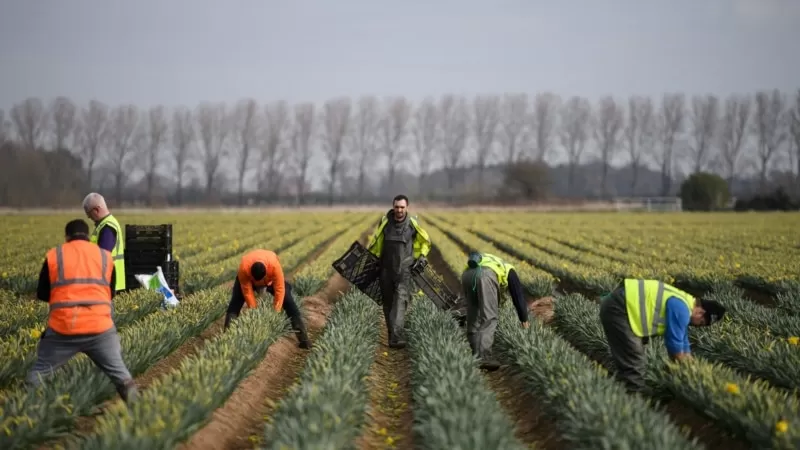GENEVA – Migrants are essential to the global economy as they fill crucial jobs in foreign countries and send much-needed remittances back to their home countries, according to a report released by the International Labour Organization (ILO) on Monday.
The report’s findings are particularly relevant as President-elect Donald Trump has pledged to deport millions of undocumented migrants from the United States, accusing them of draining economic resources and taking jobs from native-born Americans.
However, the ILO report debunks this belief by highlighting the positive contributions that migrants make to both the countries they enter and the ones they leave.
Sukti Dasgupta, director of the ILO’s conditions of work and equalities department, emphasized the role of migrants in driving economic growth in destination countries and supporting their home countries through their remittances and skills transfer.
Rafael Diez de Medina, chief statistician at ILO, also refuted the notion that migrants are taking away jobs from nationals.
He explained that migrants often fill specific roles in low-wage or specialized jobs, complementing the national labor force rather than displacing it. While there may be competition in some contexts, there is no evidence that migrants are taking away jobs from nationals.
The report defines migrants in the labor force as all foreign-born persons employed or unemployed in a host country, regardless of their legal status. This includes both documented and undocumented migrants, providing a comprehensive picture of the migrant labor force.
The report covers 189 countries and territories, representing 99% of the world’s population in 2022. It estimates that there were 167.7 million migrants in the international labor force, accounting for 4.7% of the global working force.
While the migrant labor force has increased by over 30 million since 2013, the growth rate has slowed down to less than 1% annually from 2019 to 2022, largely due to the impact of the COVID-19 pandemic.
The report also notes that the overall composition of the migrant labor force has remained relatively stable, with men accounting for 61% and women 39%.
The majority of international migrants in the labor force (68%) were concentrated in high-income countries in northern, southern, and western Europe, North America, and the Arab states. These countries offer higher living standards and more job opportunities, making them attractive destinations for migrants.
Dasgupta highlighted that most migrants work in the service sector, which accounts for 70% of all working migrants, particularly women.
Diez de Medina explained that the estimates presented in the report are based on a new and improved methodology that allows for more detailed breakdowns. This provides a better understanding of the characteristics and contributions of the migrant labor force.
In 2022, the ILO reported that migrants faced a higher unemployment rate of 7.2% compared to 5.2% for non-migrants, with migrant women experiencing higher rates of unemployment than men. This disparity can be attributed to factors such as language barriers, unrecognized qualifications, discrimination, and limited access to childcare.
Diez de Medina stressed the importance of ensuring that migrant workers have access to social and labor protections and are covered by the country’s labor laws, particularly for domestic workers.
He emphasized that instead of being a drain on society, migrant workers are a benefit and essential for the global economy, particularly in sectors such as services, manufacturing, and agriculture.
He warned that restricting the movement of migrant workers could result in labor shortages in specific sectors in destination countries.
Dasgupta also highlighted the significant contributions that migrants make to host economies through taxes, social security payments, and other means. She noted that their employment to population ratios are often higher and that second-generation migrants contribute more than they withdraw.
In conclusion, the ILO report presents a positive and comprehensive view of the contributions made by migrants to the global economy. Migrants play a crucial role in driving economic growth, filling essential jobs, and supporting their home countries through their remittances and skills transfer. It is essential to recognize and protect the rights of migrant workers and to acknowledge their valuable contributions to society.


